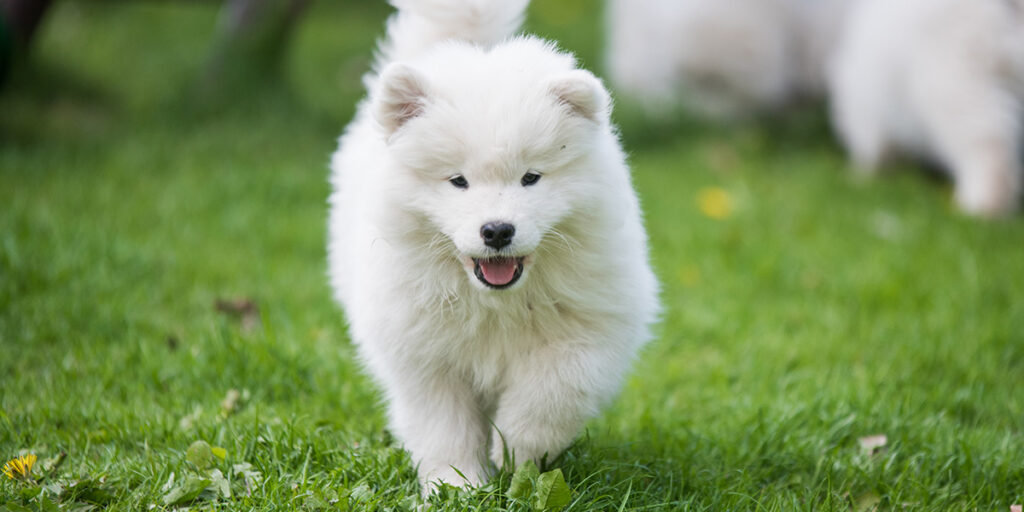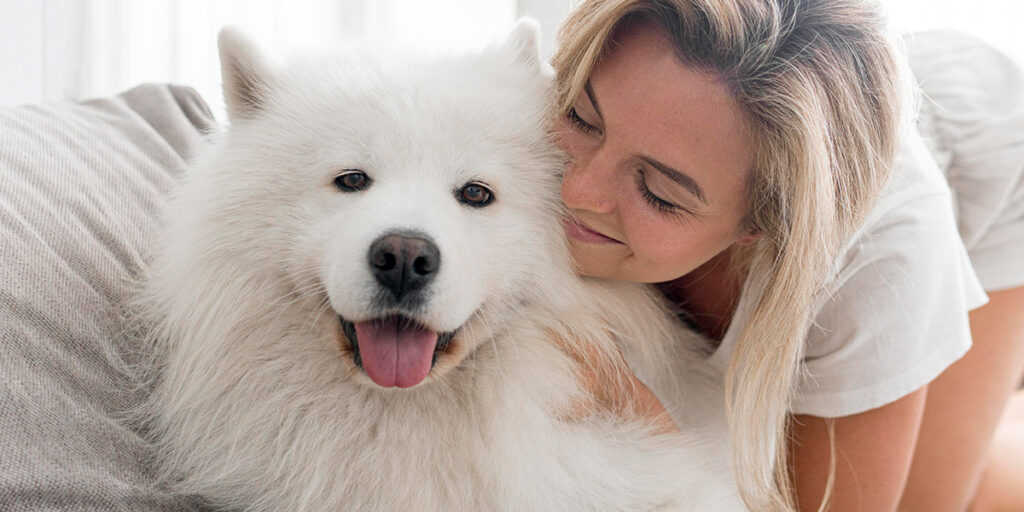Struggling with dog allergies while being a dog lover at the same time is a challenging experience to go through. Things are made even worse by falling in love with a breed that may cause you many health issues due to the same reasons.
Are you a Samoyed parent, or are you planning to welcome one into your family?
The debate on the internet regarding the question ‘are Samoyeds hypoallergenic or not’ may be confusing you.
In this article, we will be solving the mystery once and for all.
Let’s get started!
Table of Contents
What Does Hypoallergenic Actually Mean?
First of all, it is essential to understand that there are no dog breeds that are 100% hypoallergenic nor allergen-free.
Dogs are said to be hypoallergenic if they are not known to trigger allergies. As a result, even if your dog is considered hypoallergenic, it does not necessarily mean there isn’t a chance for the dog to trigger an allergic response. Instead, it simply implies that the dog is much less likely to do so.
Most often, the dogs that we consider hypoallergenic:
- shed very little or not at all;
- are hairless or have short coats.
The reason for this is simple – the thing that causes allergies in the first place is not the dog’s hair. The cause is dander. The greater the amount of dander in the air, the more likely you are to have an allergic response. Long-haired dogs or dogs with a double-layered coat usually produce more dander.
There is a variety of breeds noted for lower allergen levels, such as:
- Poodle,
- Basenji,
- Schnauzer,
- Maltese,
- etc.
However, these are just guidelines as there are many individual sensitivities regarding animal dander allergies. Remember that people’s sensitivity can vary over time and from person to person. While one person may be fine, another may have an allergic reaction due to a new exposure.
Are Samoyeds Hypoallergenic Dogs or Not?


Yes, Samoyeds are considered hypoallergenic dogs. However, they are not 100% allergen-free!
Samoyeds are a unique dog breed among other hypoallergenic dogs, as they are long-haired and have double-layered fluff coats, unlike the rest!
Why Are Samoyeds Considered Hypoallergenic
The explanation we have given above about the hypoallergenic dogs, in general, would make it evident that Samoyeds are a risky breed for people with allergies.
After all, they shed a lot, have a long, double-layered coat, and are basically the opposite of everything that characterizes a standard hypoallergenic dog breed.
Moreover, when we say they shed a lot, we mean a LOT!
One of the most noticeable features of Samoyeds is that they face high seasonal shedding at least twice a year. The amount of fur that you will find around your house during the shedding season is humongous!
So, why are they considered hypoallergenic?
Here are the two main reasons:
#1 – Samoyeds Produce Less Dander
The skin that is shed off from the body of animals with their hair is the dander. As we explained above, dander is the most common reason for allergies due to a particular protein found in it.
Although Samoyeds produce dander, its quantity is much lower than most dog breeds and is likely to cause less reaction.
Most people misinterpret this information and quickly assume that Samoyeds are 100% allergen-free, which is NOT true. Their hair is simply less likely to interfere with your immune system and cause an allergic reaction.
#2 – Samoyeds Do Not Drool Much
The second major reason for dog allergies is their droll.
Therefore, another remarkable fact about Samoyeds is that their drooling level is low compared to other dogs!
The reason behind this is their facial structure. Precisely, their long snout and the way their mouth forms a smile leads to less production and dripping of drool.
As a bonus point, your home will be much cleaner than with many other dog breeds that are heavy droolers.


Recap
To quickly recap:
Yes, you can consider Samoyeds a safe option for some people with dog allergies since they produce less dander and are not prone to drooling a lot.
However, each allergic person should try to spend some time around Samoyeds first before they decide to welcome one into their own family. Doing this will enable you to see if any allergic reactions arise, as they can differ significantly from person to person.
Your Turn
We hope we have cleared up any confusion you may have had about Samoyeds and their status as hypoallergenic dogs.
Now, let us know your thoughts:
Were you surprised to hear some of the facts we introduced in this article?
Let us know in the comments below!
